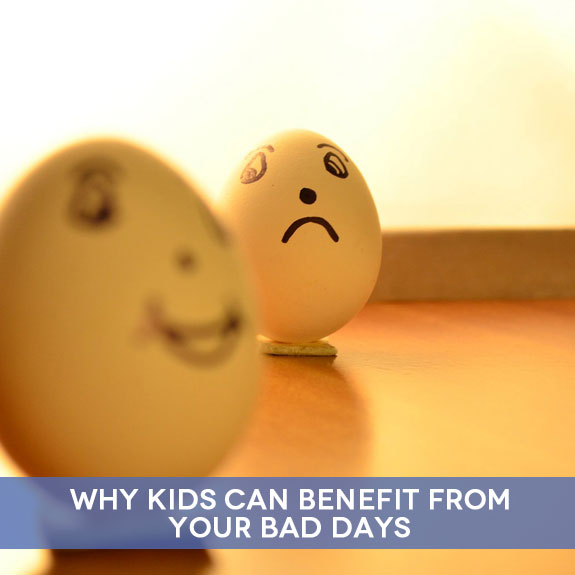Lessons Learned: Why Kids Can Benefit From Your Bad Days
Today's Lessons Learned essay (see submission guidelines here) was inspired by my work with Responsibility.org’s #TalkEarly program:
Over the last 10 years, I've found that parenting has offered the unique (and sometimes maddening!) opportunity to deal with baggage from my childhood. And getting a second shot at parenting with Violet has shown me my limits and also helped me let go of any visions of perfection. To be more specific, over the last several years I’ve learned a lot about being more honest with my kids about how I’m feeling -- for better or worse.
To give you context: I grew up in chaos. Our 3BR home was crammed with 2 parents, 7 kids, and anywhere from 1-5 relatives, and our means were very, very little. At baseline, my father had a fiery temper and his alcoholism amplified his anger to extremes. As a result, I grew up very scared of anger and quickly defaulted to shutting down in the face of conflict (even with safe people, like Jon).
Our home now is nothing like mine was growing up but by personality, Laurel is very uncomfortable with conflict and she clamps down on anger. Violet, in contrast, gravitates towards conflict. And man does she let it fly when she’s angry! Parenting Vi has been a completely different experience and by virtue of my own limits, plus my discoveries about healthy anger, I have become a more honest parent.
When I was in D.C. for the #TalkEarly summit, parenting coach Meghan Leahy discussed the idea that parents are “condition setters” every day. This terminology references the fact that kids see everything we do (it’s totally true btw). My earlier self aligned with many parents I know -- even when I was flat out pissed off, I put my best face on, I clamped down on my bad days, and I protected Laurel from conflict. And while I of course don’t believe that kids should experience the level of conflict my siblings and I lived, I now know that a big part of condition setting as a parent is being honest about your full range of emotions. And that kids can -- in fact -- benefit from your bad days. Here are 5 reasons why:

1. Kids need to learn about imperfection
I’m a “recovering perfectionist.” I used to strive for it and that used to also extend to trying to be happy for Laurel all the time. Which of course was an impossible standard. You can still teach your kids to have high standards in life, but don't let the quest for perfection paralyze you or them. If you don’t believe me, believe Voltaire, who has been credited with the quote “perfect is the enemy of good.”
2. Kids need to see that their range of emotions is normal
Particularly as kids get to the tween/teen stage, their emotions will amplify and it can be confusing for them. By being honest with them about your good and bad days, you'll show them that their range of emotions is normal.
3. The bad moments set the stage to teach about recovery and resilience
Life is all about contrast. Your bad days will set the stage for your good days and your kids will subsequently learn about recovery and resilience.
4. Showing your true self makes you more relatable
Your kids will feel more comfortable talking to you if they can relate to you as a real person. Being genuine about your struggles will get you there.
5. Bad days offer teaching moments
The #TalkEarly program is all about modeling healthy behaviors and improving communication with your kids -- about alcohol consumption and also lots of other things. Even though in the moment a bad day will feel crappy for you, it also offers you the opportunity to talk to your kids about everyday moments and challenges, and this will equip them to manage situations in their own lives.
Have you struggled with these issues too? It's been a completely strange and liberating experience to both allow myself to be more open and honest about my negative emotions and also encourage Laurel to do the same. But I'm grateful we're able to do it together.
Do you want to submit a Lessons Learned essay? See submission guidelines here.
Disclosure: This post was inspired by my work as part of Responsibility.org’s #TalkEarly program. All thoughts and opinions are, of course, my own.
